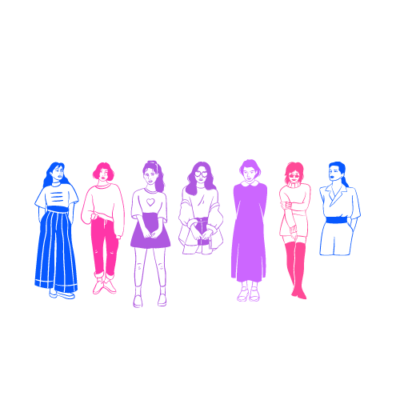#Poderfemenino
As we round out celebrations for International Women’s Day / Month, how far have we come and how far do we still have to go?
World Economic Forum reports that The COVID-19 pandemic has set back gender parity, but research shows that in countries with female leaders, there was faster action in managing the crisis response, leading to fewer deaths.
The 2021 Women in the Workplace report from Lean In and McKinsey found that women are more burned out than they were a year ago, and that the gap in burnout between women and men has nearly doubled.
The COVID-19 pandemic has exposed and exacerbated those disparities which have already disproportionately impacted women’s labor force participation, multiplied the burden on paid and unpaid caregivers, and increased rates of gender-based violence.
According to Eurocadres ILO Report – Women in Business and Management – Gaining Momentum in the Caribbean, The EU gender pay gap has been reduced by only 1% over the last eight years. At this rate, women in the EU will achieve equal pay in the next century, by the year 2104. The gender pay gap currently sits at 14.1% (women in the EU earn on average almost 15% less per hour than men)
The Caribbean, however, has been a traditionally strong performer for women in the workplace. The subregion outpaces its neighbours, and often the world, in terms of women’s employment and representation as managers and at the top of company hierarchies.
Encouragingly, over 43 per cent of the surveyed Caribbean companies have exceeded the 30 per cent target of women board members that studies show is needed to create a critical mass and reap the benefits of gender diversity. Moreover, nearly a quarter (24 per cent) of Caribbean companies have achieved gender parity on their boards where the proportion of female board members is between 40 to 60 per cent. In addition, the proportion of non female boards in Caribbean companies surveyed is 19 per cent, significantly lower than the global average of 31 percent. Increasing the number of women CEOs and women on boards is a key leverage point, and can create a multiplier effect for women at all levels of management across the Caribbean.
Recent milestones for women include :
- Rear Admiral Antonette Wemyss Gorman who was appointed in January as the first woman to run Jamaica’s military. She has faced down danger and sexism in her 29-year career but hasn’t let gender hold her back. “I was never focused on the fact that I was a woman,” she told the Thomson Reuters Foundation. “I think a lot of times women make a mistake of focusing on their gender and cause their own limits in what they are doing.”
- Xiomara Castro was sworn in as Honduras’s first woman president at the end of January
- Justice Ayesha Malik was appointed Pakistan’s first female Supreme Court judge in January.
- the U.S. Soccer’s pledge to equalize pay between the men’s and women’s national teams in all competitions, including the World Cup, the change could funnel millions of dollars to a new generation of women’s national team players.
And as the debate continues over the nomination of Federal appellate judge Ketanji Brown Jackson, soon to be the first Black woman to serve on the US Supreme Court, we can only hope that the leaps and bounds of progress made are not washed away by the misogynistic type questioning that embodies the politics of the USA.
Despite those achievements and the vast talent pool of qualified women, many gaps and challenges remain.
Women in the Caribbean are still underrepresented on company boards and among top corporate executives, and the majority of women managers work in small or medium-sized enterprises, in support functions such as human resources and in the low to middle tiers of management.
So as we officially restart this decade, let us all utilize our platforms to #break the bias.


